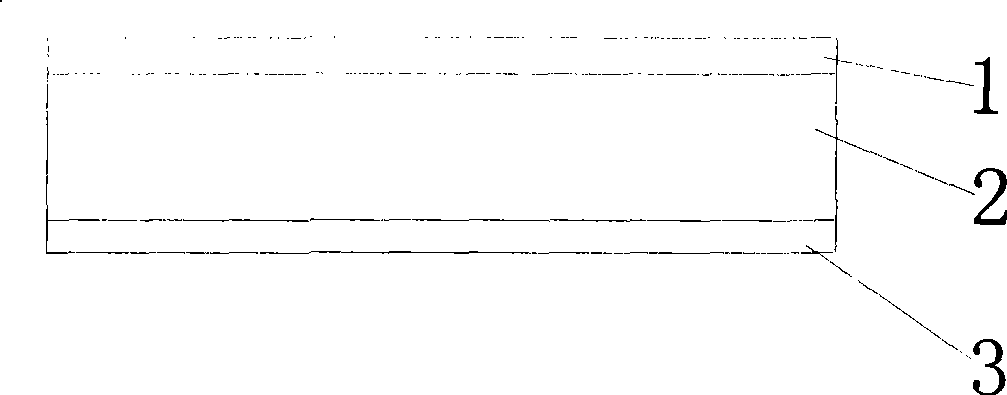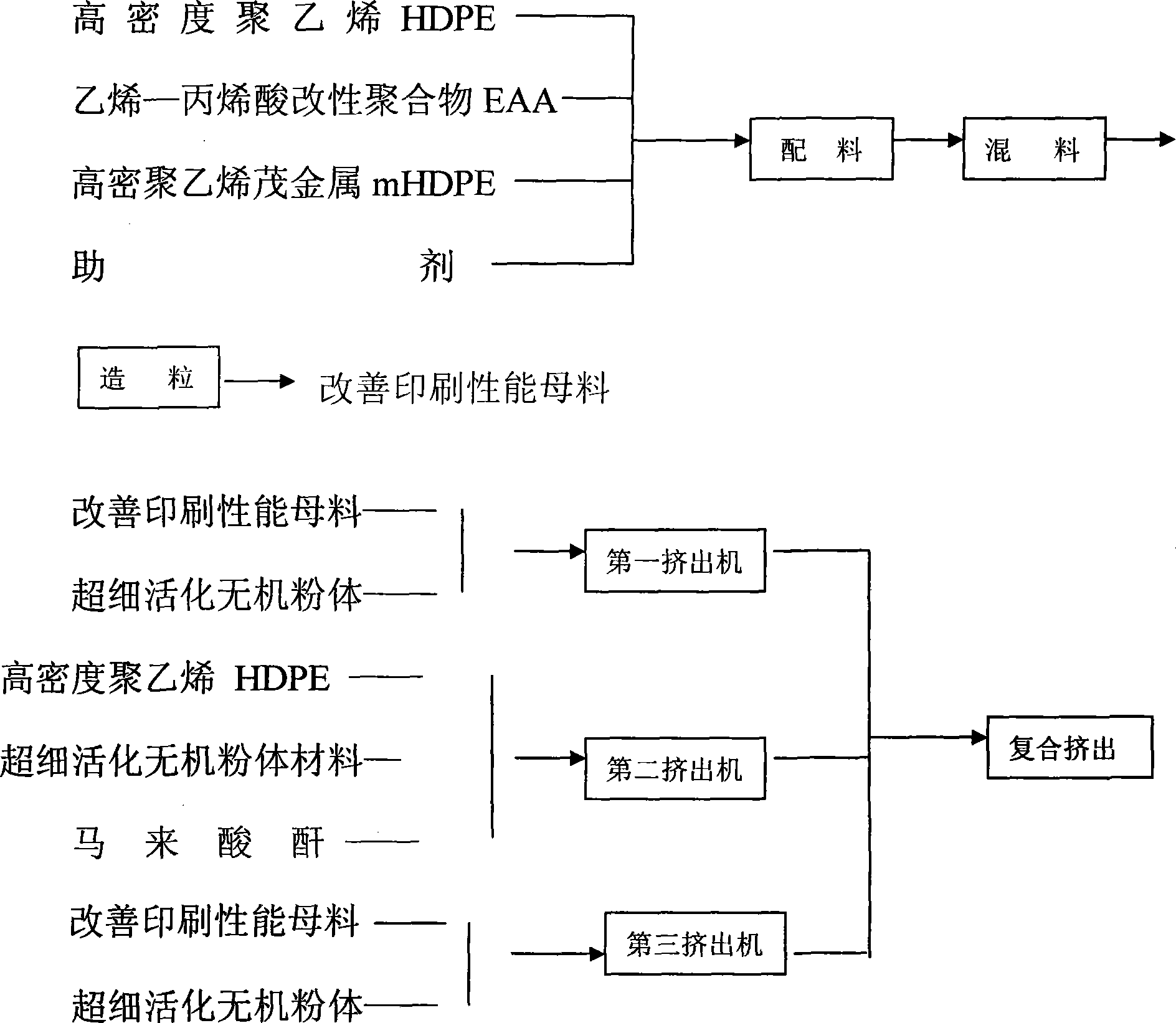Modified polyolefins paper without plant fibre
A plant fiber and olefin paper technology, applied in the direction of layered products, synthetic resin layered products, chemical instruments and methods, etc., can solve the problems of wasting forest and water resources, destroying ecological balance, endangering personal safety, etc., and achieve ink saving , Improving ink absorption and clear printing performance
- Summary
- Abstract
- Description
- Claims
- Application Information
AI Technical Summary
Problems solved by technology
Method used
Image
Examples
Embodiment 1
[0037] A modified polyolefin paper without plant fibers, which is composed of a first base layer 1, a second base layer 2 and a third base layer 3.
[0038] The first base layer 1 and the third base layer 3 are composed of 30% ethylene-acrylic acid modified copolymer EAA, 48% metallocene high-density polyethylene, 20% activated ultrafine inorganic powder with a particle size of 5000 mesh and additives. Prepared as antistatic agent lauryl dimethyl betaine 2%.
[0039] The second base layer 2 between the first base layer 1 and the third base layer 3 is made of 60% activated ultrafine inorganic powder with a particle size of 3500 meshes, 5% maleic anhydride, and high-density polyethylene 33, and the second A base layer 1, a second base layer 2 and a third base layer 3 are combined into an integral structure. The first base layer 1 and the third base layer 3 respectively account for 8% of the total weight of the paper, and the second base layer 2 accounts for 84% of the total wei...
Embodiment 2
[0041] A modified polyolefin paper without plant fibers is composed of a first matrix layer 1, a second matrix layer 2 and a third matrix layer 3 combined into a whole.
[0042] The first base layer 1 and the third base layer 3 are respectively composed of ethylene-acrylic acid modified copolymer EAA 20%, metallocene high-density polyethylene 59%, 3000-5000 mesh activated ultrafine inorganic powder 20% and additives Static agent lauryl dimethyl betaine 1% prepared.
[0043] The second matrix layer 2 is made of activated ultrafine inorganic powder with a particle size of 1000-1500 mesh, namely 70% talcum powder, 5% maleic anhydride and 25% high-density polyethylene. The above percentages are percentages by weight. The first and third substrate layers each constitute 10% of the total weight of the paper, and the second substrate layer represents 80% of the total weight of the paper.
Embodiment 3
[0045] A modified polyolefin paper without plant fibers is composed of a first matrix layer 1, a second matrix layer 2 and a third matrix layer 3 combined into a whole.
[0046] The first base layer 1 and the third base layer 3 are respectively composed of 25% of ethylene-acrylic acid modified copolymer EAA, 49.5% of metallocene high-density polyethylene mHDPE, 23% of ultrafine inorganic body talcum powder with a particle size of 3000-5000 mesh and The additive is prepared from 2.5% aluminate.
[0047] The second matrix layer 2 is prepared from 70% of superfine inorganic body talcum powder with a particle size of 1000-1500 mesh, 4% of maleic acid, 24% of high-density polyethylene and 2% of low-molecular polyethylene as an auxiliary agent.
[0048] The above percentages are percentages by weight. The first base layer 1 and the third base layer 3 respectively account for 9% of the total weight of the paper, and the second base layer accounts for 82% of the total weight of the p...
PUM
| Property | Measurement | Unit |
|---|---|---|
| Granularity | aaaaa | aaaaa |
| Granularity | aaaaa | aaaaa |
| Granularity | aaaaa | aaaaa |
Abstract
Description
Claims
Application Information
 Login to View More
Login to View More - R&D
- Intellectual Property
- Life Sciences
- Materials
- Tech Scout
- Unparalleled Data Quality
- Higher Quality Content
- 60% Fewer Hallucinations
Browse by: Latest US Patents, China's latest patents, Technical Efficacy Thesaurus, Application Domain, Technology Topic, Popular Technical Reports.
© 2025 PatSnap. All rights reserved.Legal|Privacy policy|Modern Slavery Act Transparency Statement|Sitemap|About US| Contact US: help@patsnap.com


